Student Competitions
Parallel Session
3rd Shaw-IAU Workshop on Astronomy for Education
Session timeblocks
Wednesday Oct. 13, 2021
UTC: 6 a.m. -
7:30 a.m.
Thursday Oct. 14, 2021
UTC: 3 p.m. -
4:30 p.m.
Schedule
-
The purpose of Olympiads
Wednesday Oct. 13, 2021
UTC: 6 a.m. - 6:10 a.m.Thursday Oct. 14, 2021
UTC: 3 p.m. - 3:10 p.m.Science olympiads are a form of intellectual competition for school students originally inspired by the sports Olympics, and just like in sports they can motivate young people and provide a framework for them to learn and grow. In this talk I will briefly explain the International Olympiad on Astronomy and Astrophysics and how it (and national level competitions) can help education by inspiring students, as a resource of educational materials for teachers and as a means to connect students and teachers with amateur and professional astronomers.
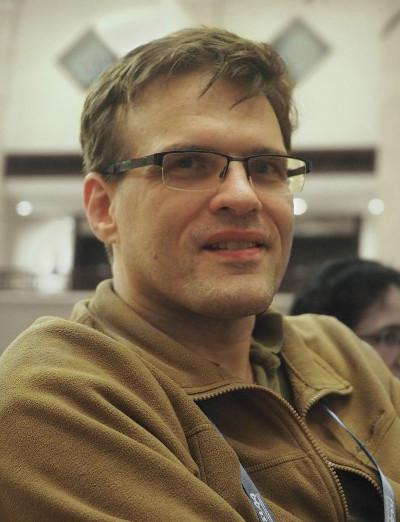
Greg Stachowski (Pedagogical University of Cracow)
For more information about this talk click here
-
Building up national / regional talent nurture programme through competitions
Wednesday Oct. 13, 2021
UTC: 6:10 a.m. - 6:20 a.m.Thursday Oct. 14, 2021
UTC: 3:10 p.m. - 3:20 p.m.The Brazilian Astronomy and Astronautics Olympiad (Olimpada Brasileira de Astronomia e Astronutica; OBA) is an annual national educational competition inaugurated in 1998 and currently in its 24th edition. Its main goal is to improve science education using astronomy and astronautics as motivators. As a consequence, it increases the students' interest in these subjects. Despite not being part of the national school curricula,Ę astronomy's appeal as a fascinating and multidisciplinary science act as a catalyst to bring students and teachers alike closer to other sciences, such as mathematics, physics, and chemistry, and other disciplines like geography, history, philosophy, and arts. One may question how a competitive event such as an Olympiad can foster the rise of new talents. Part of the answer lies in the strategies employed to attract and capacitate teachers from all school levels. We will also show how we have successfully reached teachers and students from all states in Brazil and how the wide-ranging award scheme stimulates the emergence of new talents.
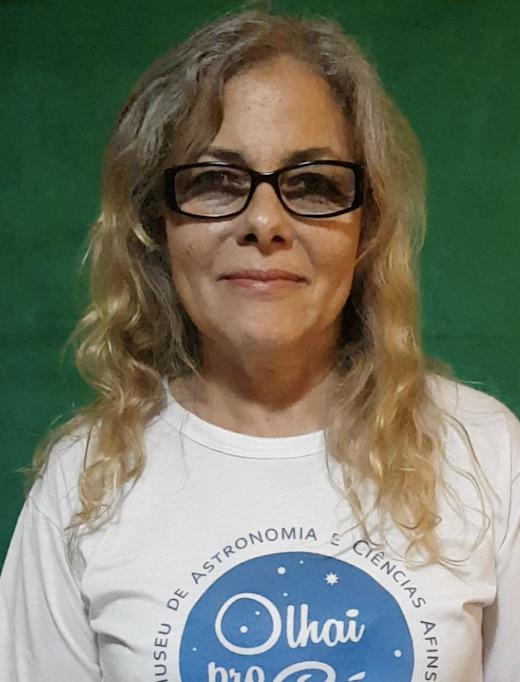
Josina Nascimento (National Observatory)
For more information about this talk click here
-
Competitions from perspective of a student
Wednesday Oct. 13, 2021
UTC: 6:20 a.m. - 6:30 a.m.Thursday Oct. 14, 2021
UTC: 3:20 p.m. - 3:30 p.m.Competitions create an educational opportunity for students of all backgrounds. In this talk I will discuss data that shows that by participating in competitions, students can learn to feel like scientists, get to know interesting peers from other countries, learn from each other, solve fun challenges, learn the value of teamwork, and have an overall fun and rewarding experience. Awareness of the existence of the competitions can motivate a student to start learning the subject, and good results in competitions have resulted in college admission and retention of interest in research.
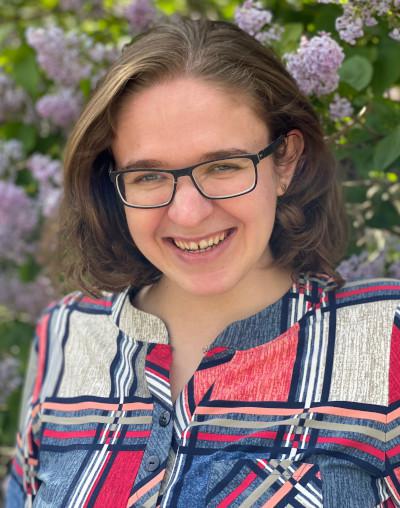
Ioana Zelko (University of California at Los Angeles, USA)
For more information about this talk click here
-
Project Based Competitions
Wednesday Oct. 13, 2021
UTC: 6:20 a.m. - 6:30 a.m.Thursday Oct. 14, 2021
UTC: 3:20 p.m. - 3:30 p.m.This talk will address the national astronomy competitions in Croatia from a teacher/mentor/committee member point of view. In a more than 50 years tradition of competition in astronomy there have been different models of realization. There were years only with the theoretical round, only with the project round and with their combination (nowadays). It will be shown the benefits and problems we encounter when applying each model as well as the problems of objective evaluation of project based competitions.
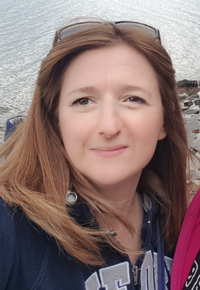
Danijela Takač (Elementary School Pantov?ak)
For more information about this talk click here
-
Astronomy Education: Unlocking Creativity in Kids through Astro Art Competition
Wednesday Oct. 13, 2021
UTC: 6:30 a.m. - 6:40 a.m.Thursday Oct. 14, 2021
UTC: 3:30 p.m. - 3:40 p.m.An excellent medium of teaching astronomy to kids, especially from less privileged background is through Arts which provides an avenue to express their creativity. The Covid-19 pandemic which resulted in a prolonged lockdown on schools across Nigeria was utilised by AWB Nigeria to launch the first ever Astro Art Contest in the country. This maiden Edition of the Astro Art Contest for Elementary and High School kids in Nigeria saw 164 entries sent in by participants from across Nigeria. The star prize in this contest being a SSVI homemade telescope signed by foremost Belgian Astronaut, Dirk Frimout was a great motivation for participants. For entries submission, participants were expected to make paintings on an A4 sized paper accompanied with a short write up describing their art work.
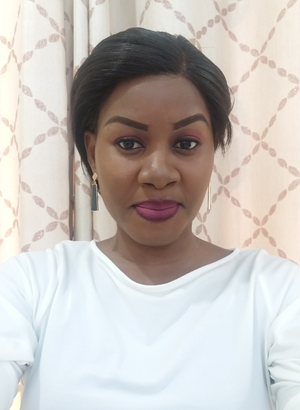
Olayinka Fagbemiro (Astronomers Without Borders (AWB) Nigeria)
For more information about this talk click here
-
Discussion Panel: Student Competitions
Wednesday Oct. 13, 2021UTC: 6:50 a.m. - 7:30 a.m.
Thursday Oct. 14, 2021
UTC: 3:50 p.m. - 4:30 p.m.Chair:
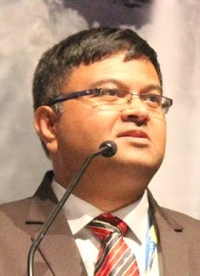
Aniket Sule
Panel: Olayinka Fagbemiro
(Astronomers Without Borders (AWB) Nigeria), Michael Gavrilov , Josina Nascimento
(National Observatory), Greg Stachowski
(Pedagogical University of Cracow), Danijela Takač
(Elementary School Pantovčak), Ioana Zelko
(University of California at Los Angeles, USA)
Posters
-
Innovation in Space Science Learning Project in Panama
Madelaine Rojas (National Secretariat of Science, Technology and Innovation - SENACYT), Francisco Matos (PNUD - SENACYT)
The free professional development programs and astronomical contests inspire, engage and empower the next generation of Panamenian scientists. The number of registered in all the activities presented a decrease in the pandemic. Therefore, the objective of the study is to correlate audience participation to astronomy outreach activities. For this study we have maintained an updated participants database that allows a qualitative, quantitative, and documentary analysis. The database is categorized by regions, gender and interests. Audience participation rates differ by gender with 60% female participation in astronomical competitions and 90% female participation in professional development programs.
-
Qatar Astronomy Olympiad for Schools
Hani Dalee (Arab Union for Astronomy & Space Sciences)
In our talk, we are going present a summary of “Qatar Astronomy Olympiad for Schools” and its different projects, which were carried out in different editions of the Olympiad. We will show the positive impact, as students were involved in the work. We will also show how we could utilize these events to create a community of amateur astronomer descending from different nationalities who are living in the State of Qatar.
-
The educational and scientific importance of CanSat school project
João Dias (ESERO Portugal project manager / Ciência Viva's scientific culture and outreach unit)
CanSat Portugal is an educational project of ESERO Portugal, organised by Ciência Viva and ESA. This initiative challenges secondary school students from all over the country to design and build a functional model of a small satellite with the same dimensions as a soda can. All teams are given a primary mission and have to choose a secondary one. They have to design and build their own CanSat, along with its parachute, prepare it for launch, assure its communications with the ground station and analyse the scientific data obtained. They are also strongly advised to look for external scientific and technological support. Overall, this competition engages the students to work together as a team on a real space mission and to live a challenging yet fun scientific and technological experience.




